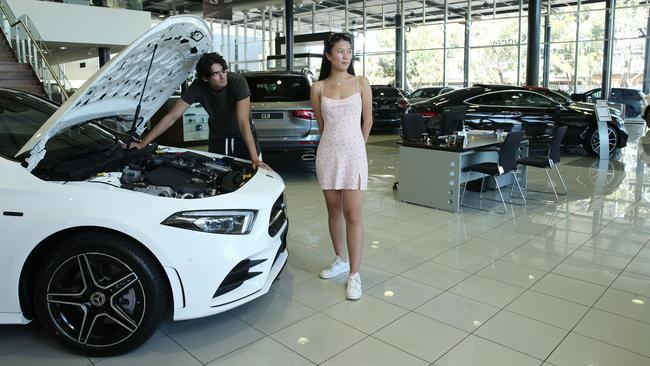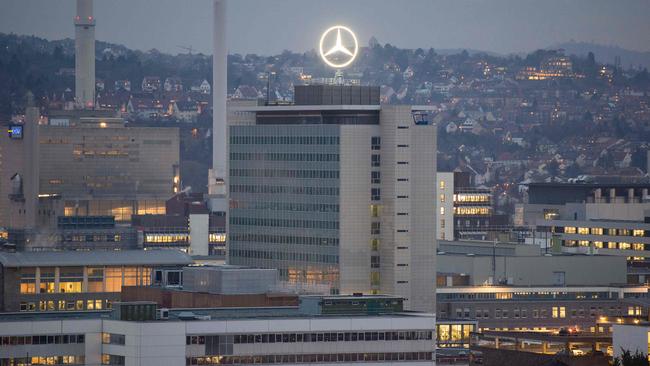Australian dealers seek $650m from German car giant Mercedes-Benz over new sales model
The $650m court case between Mercedes-Benz and angry Australian car dealers has been told a profit grab was behind a newly imposed sales model.
Mercedes-Benz pushed through a new sales model in Australia to peel profits from car dealers, boost its earnings and take control of prized customer data, a court was told on Tuesday.
A $650m court battle launched by a group of disaffected Mercedes-Benz car dealers against the German car giant began in the Federal Court on Tuesday, with the court told of a secret planning stretching back to 2016 that would see the German carmaker up-end the businesses and lives of its car dealers in Australia.
Tim Castle, QC, appearing for the dealers, told Justice Jonathan Beach that Mercedes-Benz began working on a new sales model for the Australian market as far back as 2016 which treated commissions made by its car dealers as a “cost of doing business”.
The court was told that within a few years – despite the concerns of its dealership network – it had chosen a model that would “seal the fate” of dealers.
Mr Castle said the new agency model had nothing to do with removing haggling or improving relationships with its customers, but rather that Mercedes-Benz sought to transform itself from a wholesaler to a retailer and capture much of the profit once made by its car dealers.

“They saw profit earned by dealers as a cost of sales, (a) rather disparaging way to view partners,” Mr Castle said in his opening remarks.
He said it was “fanciful” for Mercedes-Benz to argue the new agency sales model, referred to by Mercedes-Benz headquarters as “model D”, was in response to a request by its Australian car dealers for a better sales model.
Mercedes-Benz held a number of meetings with local car dealers to discuss the new sales model. But when the German carmaker eventually pushed through the new agency model from January 1 this year, 38 incensed Mercedes-Benz dealerships launched court action. They have claimed as much as $650m, and accuse the carmaker of failing to properly negotiate or compensate them under the new agency model.
Mr Castle said “Model D” was discussed and in place at the carmaker’s German headquarters by 2016, and that it was “fanciful” to claim – as Mercedes-Benz has – that it was developed over time in conjunction with the car dealers and consultancy firm Deloitte.
He said the Deloitte workshops held with car dealers was a “disguise” to persuade them to agree to Model D.

“That’s when the dealers said ‘no, we don’t like it’,” Mr Castle said.
He said an executive from Mercedes-Benz travelled from Germany and told dealers Model D would be pushed through “because we can”, leaving the car dealers with no option.
“This up-ended their (car dealers’) lives and up-ended their businesses,” Mr Castle told the court.
He said Mercedes-Benz was seeking a direct “life long” relationship with car buyers, but “that’s our customers” who belonged to the car dealers as they were the retailers not the car maker.
“Who owns the customer relationship? We own it and clearly own it because we are the retailer they are the wholesaler,” Mr Castles told the court. “They have designs on our customers and our customer relationships.”
He said if Mercedes-Benz wanted those customers and the goodwill attached they must compensate the car dealers.
The case is continuing.







